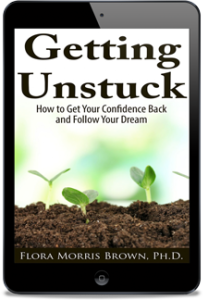 There was a time when you prepared to move by sorting through your possessions making decisions about what to keep, give away, sell or throw away.
There was a time when you prepared to move by sorting through your possessions making decisions about what to keep, give away, sell or throw away.
Then along came the creation of self-storage units where, for a monthly fee, you can cram your old mattress, lava lamp, TV with the nonfunctioning VHS, and stacks of other possessions whose time had come and gone into a metal unit with a single lightbulb dangling from the ceiling. The self-storage companies grew and expanded as people clung tighter and tighter to things they would never use again but couldn’t let go.
There are some benefits to self-storage units
Self-storage units are great for temporary use.
- RV and boat owners can safely store these when restrictions disallow parking them on the street or in driveways.
- Small businesses with home-based or very small offices safely store their inventory, financial records and seasonal decorations for less than it would cost to have a large commercial building big enough for office and storage.
- Homeowners use self-storage units to hold the contents of an entire room or two during remodeling, to clear space for a holiday boutique or special event or when they are between houses.
When I sold my house, for example, I stayed with a friend for five weeks until escrow closed on my new house. I put all my household possessions in a self-storage facility near a freeway for those five weeks so it would be convenient for the big move when we were ready.
I treated the move from my house to the storage unit the same as if I was moving directly into my new house. I sorted, gave away and threw away over many weeks. Anything that wasn’t going to go into the new house was not going into storage.
I got rid of more than I took. It was very liberating for me, though not well-received by all.
I had been using my mother’s dining room set in my old house because she didn’t have room for it when she downsized to a studio apartment in a senior facility. But it wasn’t my style so I had no plans to take it with me, much to her dismay. She would never use it again, but she didn’t want to give it away. Visiting it at my house was a good compromise for her.
When I told her I wasn’t taking it with me, she asked. “What are you going to use in your new dining room?” I knew she was more concerned about the fate of her much-beloved dining room set than about my empty dining room.
“Nothing,” I returned, “until I get the furniture I want.”
She pondered my response trying to process the notion that my dining room would be sans-furniture for a while.
I had ended my term of being a storage for her dining room set, and definitely ended my willingness to keep anything I no longer wanted.
Are you storing someone else’s stuff that they will never use again?
This is where many people get stuck. They just can’t let go of their own stuff and can’t say no to other people’s stuff.
For too many people, however, the wide availability of the self-storage units offers an option that has leads down the path of literally clinging to old baggage. In this regard, there are three reasons public storage units are not your friend.
1. Delay decluttering
They encourage you to store things rather than make an immediate decision about them. So much of what you keep is no longer of use to you, and yet you can’t seem to let go. When the storage unit becomes full to the brim you are forced to thrown something away after all, or rent a larger unit. Ka-ching!
Have you ever gone to visit your stuff in storage only to discover that it is mildewed, broken or shop-worn? Now your stuff is of no value to you or anyone else. And, to top things off, with rules changing about what and where we can discard things, you may even have to pay to dispose of it.
Now that just doesn’t make sense. You have paid dearly to postpone doing what you could have done in the first place and free of charge.
2. Weigh you down
Did you think putting your old bed, worn couch and miscellaneous lamps in storage got rid of them?
Just because you can’t see them regularly anymore doesn’t mean they’ve left your consciousness. If you feel stuck in your life, not as creative as you could be, it may be that the stuff you have stored that is blocking the flow in your consciousness.
3. Eat up your money
Self-storage units were a great idea for the companies who created them. They don’t even have to employ many people since you deliver and unload your own stuff. On top of that, they charge extra for locks and other accessories, as well as restrict your access by setting “viewing” hours.
I haven’t checked, but I bet they are not even liable if your stuff comes up missing.
When you rent a storage unit you have just created another bill. And it comes relentlessly each month. You don’t earn interest or even get a birthday card each year. In the end, if you are not able to keep up with this bill you earn the ignominious title “non-paying tenant” and your contents are considered abandoned and will be sold to the highest bidder at auction.
These auctions are a big business since you never know what folks have stored. Modern-day treasure hunters love the mystery and possibility of finding something of value among your stuff.
Now you’ve lost your stuff for good while several layers of people have benefitted financially. Everyone except you, that is.
So, before you sign that contract to store your stuff in a self-storage unit reevaluate your reason, the anticipated time frame, and the financial costs. If you discover that you are just delaying decluttering, don’t proceed. Declutter instead, then celebrate the money you’ve saved and bask in that feeling of lightness also known as peace of mind.
[Photo from Creative Commons, “Moving Day” from McCord Museum, Montreal]
Updated August 12, 2019
 During cold season I cruise the medication aisles of my local drug store looking for the drug that matches my combination of congestion, coughing and sinus headache. Once I find this area, I pull box after box from the shelf studying the symptoms that the drug promises to address and has the least scary side effects.
During cold season I cruise the medication aisles of my local drug store looking for the drug that matches my combination of congestion, coughing and sinus headache. Once I find this area, I pull box after box from the shelf studying the symptoms that the drug promises to address and has the least scary side effects. Waiting my turn at a quaint coffee shop in San Diego recently, I listened as customers ordered breakfast:
Waiting my turn at a quaint coffee shop in San Diego recently, I listened as customers ordered breakfast: Last weekend as I was reading through my email and messages on LinkedIn, Twitter, etc. I ran across this article about gadgets that defined the decade http://tinyurl.com/gadgets2009
Last weekend as I was reading through my email and messages on LinkedIn, Twitter, etc. I ran across this article about gadgets that defined the decade http://tinyurl.com/gadgets2009

Recent Comments